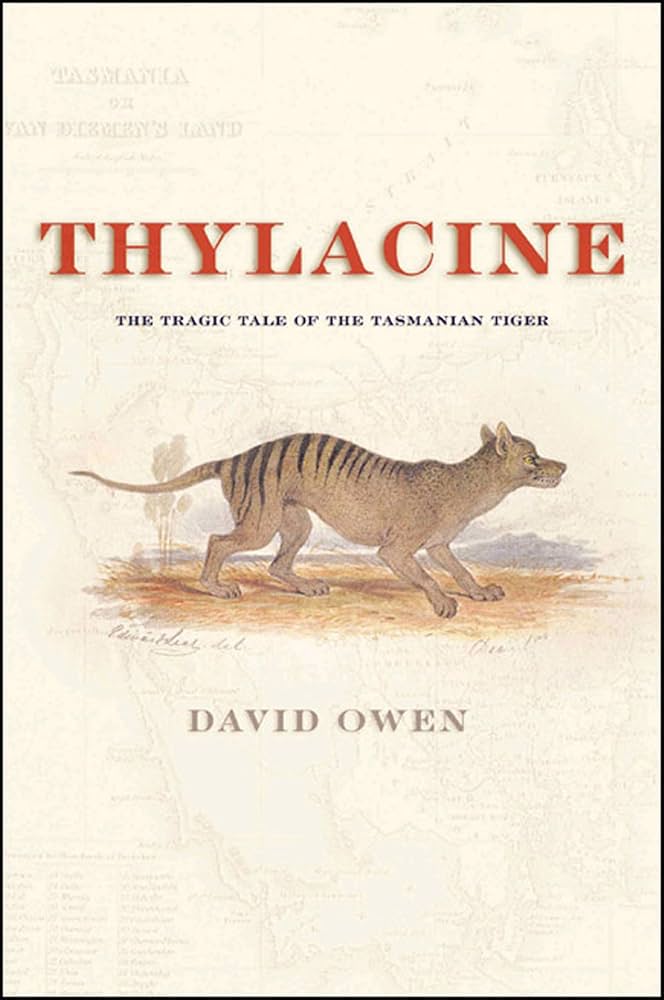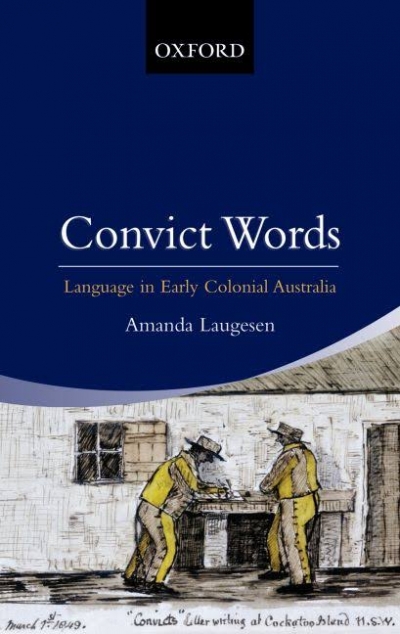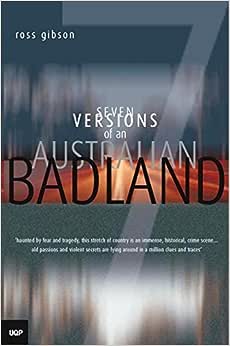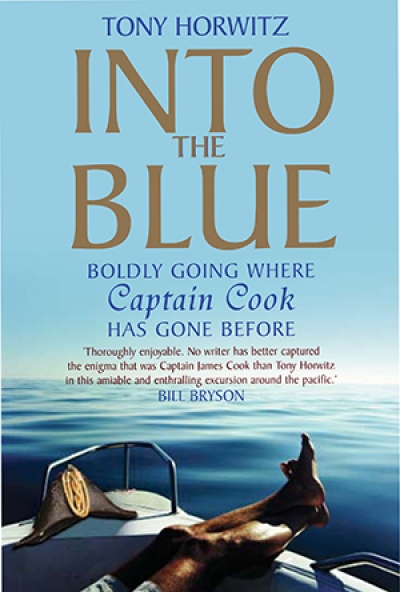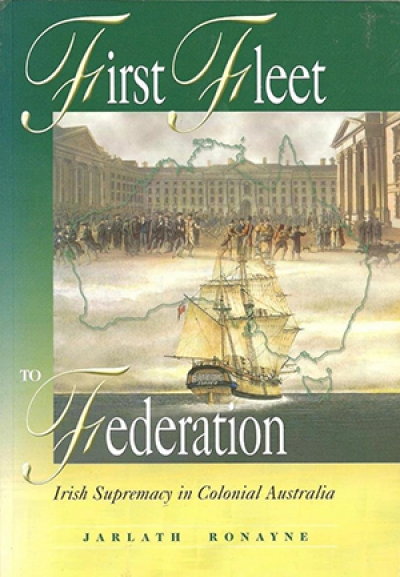Australian History
Thylacine by David Owen & The Last Tasmanian Tiger by Robert Paddle
The Tasmanian Tiger or thylacine (Thylacinus cynocephalus) continues to stalk the Tasmanian imagination. Miasmas resembling it figure in reports from tourists and bushwalkers, who happen upon the slinking apparition in the wilderness. Fanciful meanderings of wishful hearts and minds? Perhaps. Tantalising suspicions that the thylacine may still exist will not go away. No matter that the last thylacine died in the Hobart Zoo on 7 September 1936. With it died a species, but not the legend
... (read more)Ministers, Mandarins and Diplomats: Australian foreign policy making 1941–1969 by Joan Beaumont, Christopher Waters, and David Lowe, with Garry Woodard
Important political issues sometimes cut across traditional party lines, making it harder for us to confront and debate them. The ‘children overboard’ affair, for example, raised important questions about the relationship between public servants and their ministers. Some of these questions were blurred in the subsequent debate, however, for a simple reason. Since the 1970s, governments from both sides of politics have had, in effect, a common policy of restricting the independence of the public service, especially of heads of departments, in the name of accountability and responsiveness. Ministers now have departmental secretaries who can be dismissed for no stronger reason than that they have lost the minister’s confidence. The powerful mandarins who, it used to be said, ruled Australia from the lunch tables of the Commonwealth Club in Canberra are a distant memory. Political influence now affects appointments down to middle managers in ways that those mandarins would have thought totally improper.
... (read more)Australia’s Boer War: The war in South Africa 1899–1902 by Craig Wilcox
Ever since Federation, Australians have heard of the Boer War, as they have heard of the Wars of the Roses. As to deep understanding, they have as much about the one war as about the other. As a ‘Matric’ student in 1939, I had for my Commercial Practice teacher a Boer War veteran – lean, tall, bowlegged – every schoolboy’s image of our horsemen who had taught the Empire’s enemies such a lesson in South Africa. Beguiled by eager juvenile diversionists, he would treat us to ten minutes of soldier anecdotes, straight from his saddle forty years earlier.
... (read more)Convict Words: Language in early colonial Australia by Amanda Laugesen
Amanda Laugesen’s Convict Words is a dictionary of the characteristic or salient words of early colonial discourse, the lexis of the convict system and transportation, which survived until 1840 in New South Wales, 1852 in Van Diemen’s Land, and 1868 in Western Australia. It is not immediately clear what sort of readership is envisaged for the book. It would not occur to many people interested in Australian colonial history to address the subject through the words the actors in that history used, and the book does not directly answer most of the questions the enquirer might have in mind, unless of course it were convictism itself. As for word-buffs, the limited range of the target lexis – convict words in this narrow sense, and not necessarily Australianisms – may not have suggested itself as an engrossing topic.
... (read more)The Fabrication of Aboriginal History: Volume one, Van Diemen’s Land 1803–1847 by Keith Windschuttle
Keith Windschuttle seeks to undermine a ‘mindset’ among historians of Tasmania that started in Henry Melville’s History of Van Diemen’s Land (1835) and continues in Henry Reynolds’s An Indelible Stain (2001). Mindsets, or ‘interpretive frameworks’, sensitise historians to ‘evidence’ that fits their ‘assumptions’ ...
... (read more)Seven Versions of An Australian Badland by Ross Gibson & Looking For Blackfellas’ Point by Mark McKenna
The idea of place as a metaphor of Australia’s colonial past and post-colonial present is a recent development in Australian history. The three books reviewed here come from a new generation of cultural historians who want to move the story of Australia from the national to the local. These cultural historians’ books reveal an intimacy with place and a new confidence in connecting the past to the present.
... (read more)Directions by William Deane & Sir William Deane by Tony Stephen
Does Australia have a soul? I have been asked this question recently, in slightly different ways, by Russian, German, and French friends. They comprehend that Australians have an identity, but their question is about something deeper than words. About what animates us at a profound level, and which is related to our identification with the land. They say Australians demonstrate many estimable qualities, but they think that, apart from the indigenous peoples, our roots are still shallow. They think we have shed our European histories but are culturally adolescent.
... (read more)Into the Blue: Boldly going where Captain Cook has gone before by Tony Horwitz
This is a tale of a farm boy who grew up in ‘the world of the rural poor, [which] remained what it had been for generations; a day’s walk in radius, a tight, well-trodden loop between home, field, church, and, finally, a crowded family grave plot’. It is the story of James Cook’s dramatic escape from that loop, told by another equally restless soul, American journalist Tony Horwitz, who spent eighteenth months travelling the Pacific in the wake of Cook’s three great voyages of discovery.
... (read more)First Fleet to Federation: Irish supremacy in colonial Australia by Jarlath Ronayne
It was inevitable, sooner or later, someone would write a book celebrating the achievements of the Protestant Irish in Australia. Books commemorating the part played by the Catholic Irish culminated in Patrick O’Farrell’s ambit claim that they were responsible for just about everything we like to think of (or used to think of) as being distinctively Australian. Now Professor Jarlath Ronayne has given us his own hyperbolic response in the subtitle of this sumptuous publication. The best way to see the book is as a useful reminder that ‘Irish’ and ‘Catholic’ were not synonyms in colonial Australia. Irish-born Protestants, whether they were members of the Ascendancy élite or, as in most cases, of much more modest origins, identified themselves as Irish. In early Melbourne, they joined with the Catholic Irish to celebrate St Patrick’s Day as their national event. However, their Irish ‘nation’ was the Protestant nation euphorically invoked by the Protestant ‘Patriots’ of ‘Grattan’s Parliament’ in the 1780s. And Trinity College, Dublin, was the alma mater of that minority ‘nation’.
... (read more)The Ice and the Inland by Brigid Hains & Australia’s Flying Doctors by Roger McDonald and Richard Woldendorp
Australia’s frontier legend is alive and well, as is John Flynn’s contribution to it in these two new books. In Australia’s Flying Doctors, Richard Woldendorp’s glorious photographs celebrate a medical service that reaches about eighty per cent of the vast Australian landmass. They are complemented by Roger McDonald’s economical personal vignettes of outback spirit.
... (read more)

